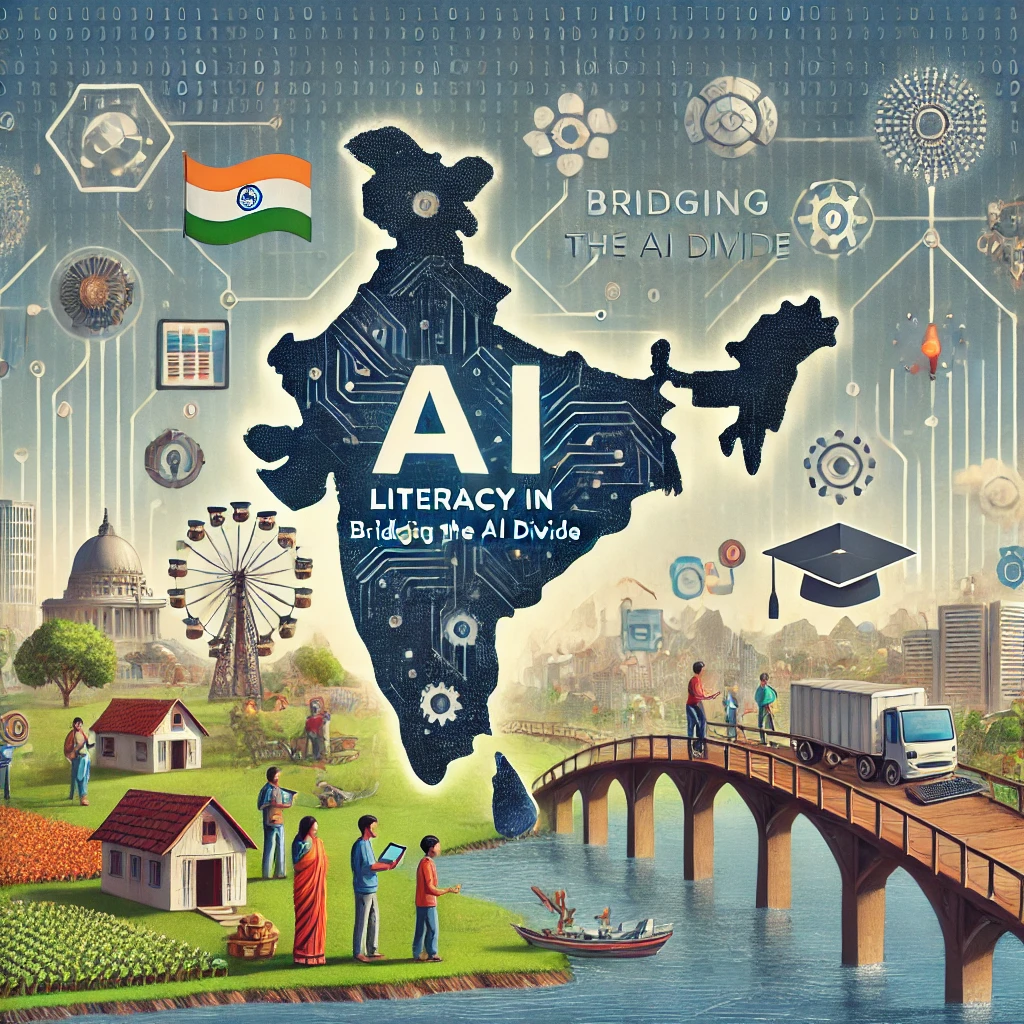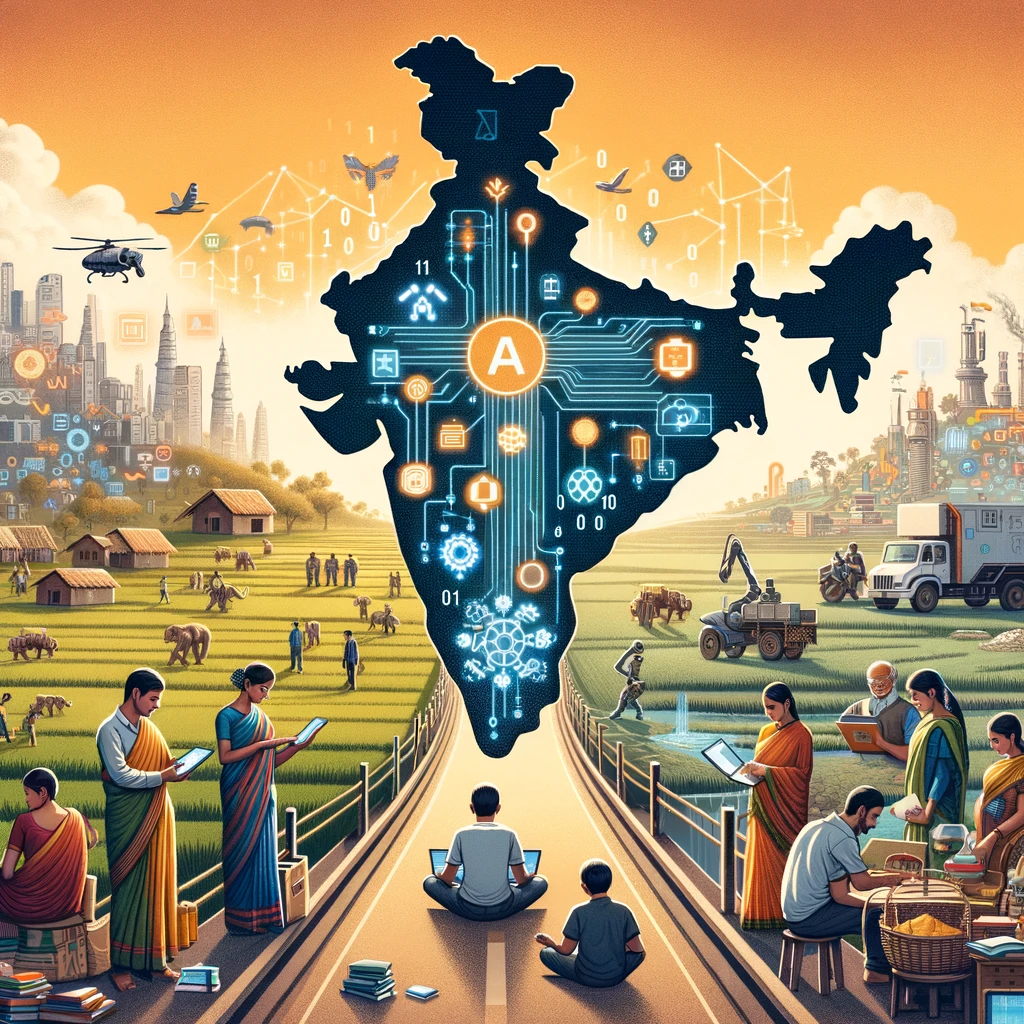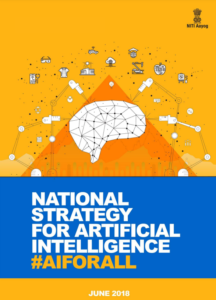AI Literacy in India
As India strides forward in the 21st century, technology has become an integral part of everyday life. From mobile banking to online education, the digital revolution has touched every corner of the country. Yet, despite these advancements, a significant portion of the population remains digitally illiterate. In this context, the rise of Artificial Intelligence (AI) presents both a challenge and an opportunity. AI literacy, or the understanding and ability to use AI technologies, is rapidly becoming as essential as traditional digital literacy. In India, where digital literacy is still a work in progress, AI literacy is not just important—it is imperative.
Understanding the Landscape: Digital Literacy in India
Digital literacy in India varies widely across different regions and demographics. According to the National Sample Survey 2017-18, only 23.4% of the population in rural India is digitally literate. This gap is even more pronounced in rural areas where access to basic education and technological infrastructure is limited. While urban areas fare better, there remains a significant portion of the population that lacks the skills needed to effectively use digital tools.
Despite government initiatives like the Digital India campaign, which aims to bridge the digital divide, challenges persist. These include issues of accessibility, affordability, and quality of digital education. In such a scenario, introducing AI literacy might seem premature. However, it is precisely in this context that AI literacy becomes crucial.
Why AI Literacy Matters
- Empowerment through Knowledge: AI literacy empowers individuals by providing them with the knowledge and tools to engage with AI technologies. Understanding how AI works—its benefits, limitations, and potential risks—enables people to make informed decisions in their personal and professional lives. This is especially important in India, where AI is increasingly being integrated into various sectors, including healthcare, agriculture, and finance.
- Bridging the Technological Gap: The gap between those who understand AI and those who do not is growing. In a country like India, where there is already a significant digital divide, this gap could lead to increased inequality. By promoting AI literacy alongside digital literacy, we can ensure that more people are included in the benefits of the digital economy.
- Enhancing Employment Opportunities: As AI becomes more prevalent in industries, the demand for AI-related skills is on the rise. However, this does not only refer to advanced technical skills. Basic AI literacy can enhance employment opportunities by equipping individuals with the ability to work alongside AI tools, improving productivity and innovation in various fields.
- Promoting Ethical Awareness: AI systems are not without their challenges, particularly when it comes to ethics and bias. AI literacy can help individuals understand the ethical implications of AI, promoting a more informed and responsible use of these technologies. This is particularly important in a diverse country like India, where AI systems need to be designed and implemented in ways that are fair and equitable.
- Fostering Innovation and Entrepreneurship: India has a vibrant entrepreneurial ecosystem, and AI literacy can play a pivotal role in fostering innovation. By understanding AI, individuals and startups can develop new products, services, and solutions that address local and global challenges. AI literacy can thus become a catalyst for economic growth and development.
The Way Forward: Strategies to Promote AI Literacy
To ensure that AI literacy becomes a reality in India, a multi-faceted approach is needed:
- Integrating AI into the Educational Curriculum: AI literacy should be introduced at the school level, with a curriculum that is accessible to all students, regardless of their background. This would ensure that the next generation is equipped with the skills they need to thrive in a world increasingly shaped by AI.
- Government and Industry Collaboration: Public-private partnerships can play a significant role in promoting AI literacy. Initiatives like AI training programs, workshops, and online courses, supported by both government and industry, can make AI education more accessible.
- Localized AI Literacy Programs: Given the diversity of languages and cultures in India, AI literacy programs should be tailored to local contexts. This includes developing content in regional languages and considering the specific needs of different communities.
- Leveraging Technology for Wider Reach: Mobile technology and online platforms can be leveraged to deliver AI literacy programs to remote and underserved areas. This would help overcome some of the barriers associated with traditional educational models.

Conclusion
AI literacy is not just a technical skill; it is a fundamental aspect of navigating the modern world. For India, a country with vast potential but also significant challenges, promoting AI literacy is crucial for ensuring that all citizens can participate fully in the digital economy. As we work towards greater digital literacy, AI literacy must be seen as a complementary and essential component of this journey. By embracing AI literacy, India can not only bridge the digital divide but also lead the way in the global AI revolution.


